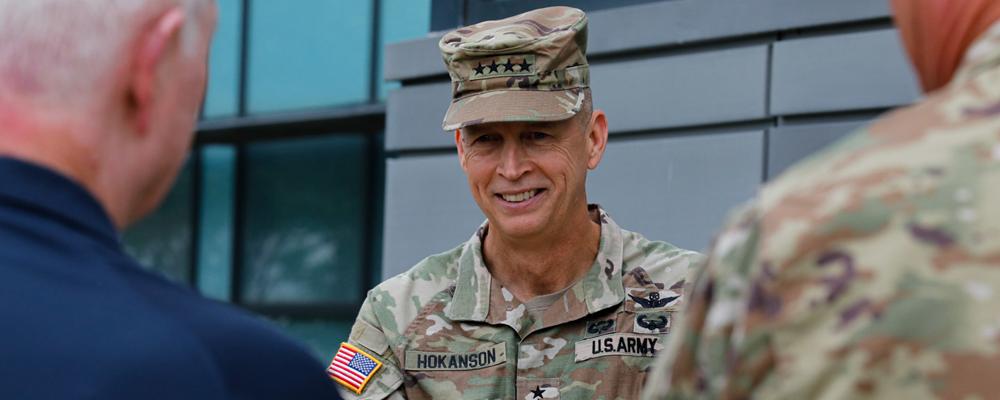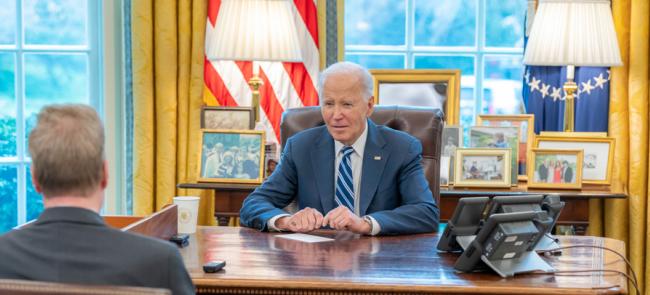
From the Chief: An Imperative
Every National Guardsman makes a promise to America — a promise to be “Always Ready, Always There.” Whether we’re flying combat missions overseas, driving trucks full of supplies to a disaster site, patrolling military outposts, monitoring cyber networks or preparing for deployment, our job is to be ready — whenever and wherever our nation needs us.
Our ability to fulfill our promise starts with being physically ready. But physical readiness is not just about pushups or pull ups or logging miles around a track; it’s also medical readiness. It’s about taking preventative health care seriously, going to follow-up appointments and getting the care and treatment we need so we can be ready to serve when our nation or our community calls.
There's no shortage of events that may call for the Guard; we must be medically ready to answer.
For too many of our fellow soldiers and airmen, that’s easier said than done. In a 2019 study, approximately 60,000 Guardsmen reported no medical or hospitalization insurance, mainly due to cost.
Imagine a scenario where a Guardsman is injured in a nonduty status, perhaps in an accident, a fall or a torn muscle playing sports. Without access to health care, their injury goes untreated. Meanwhile, the world does not slow down. Deployments and disasters continue. As a result, when the Guardsman’s unit is mobilized, they may not be medically ready.
Because they didn’t have health insurance, they weren’t able to treat their injury. Because they couldn’t treat their injury, they couldn’t’ mobilize with their unit. Because they couldn’t mobilize with their unit, our ability to respond is diminished. These cascading consequences hinder our ability to keep our promise to America.
Even our Guardsmen who have health care coverage through their civilian employer face challenges when they change duty status. Moving between civilian health care and TRICARE can create gaps in their coverage or continuity of care. For example, they may begin receiving treatment from one doctor, but be unable to continue their treatment or readily access their records when their duty status changes.
In other situations, members coming off of short-term orders lose their military-provided coverage but are unable to immediately re-enroll in either TRICARE Reserve Select or some civilian plans. Members then go a month or two without coverage, simply because of the administrative burdens of our current system.
This can cause undue medical and financial hardships for our soldiers and airmen and their families and diminish the value proposition our members see in continued service.
These scenarios might be hypothetical, but the risks aren’t. We are in an era of strategic competition with two nuclear-capable strategic competitors. We continue to see the devastating effects of severe weather and climate change. We face turbulence in the Middle East, a contested Indo-Pacific region and ongoing pressure on our allies and partners. There is no shortage of events that may call for the National Guard; we must be medically ready to answer.
That’s why I tell Congress and many others: Our Guardsmen need no-fee health care, regardless of duty status. Our Guardsmen need dental care as part of their medical readiness. Our Guardsmen need access to telehealth behavioral healthcare benefits, because mental health is part of readiness too.
I’ve prioritized no-fee health care for Guardsmen since my very first days as chief, and over the past three and a half years, we’ve gained congressional support for no-fee health care. The House introduced versions of the Healthcare for Our Troops Act and the Dental Care for Our Troops Act, and the Senate introduced legislation that would allow current Guardsmen to access the Department of Veterans Affairs for primary care.
Opposition to these initiatives centers on the potential cost. However, the cost of inaction is significantly higher: reduced readiness, diminished recruiting and retention incentives and a losing battle in the fierce competition for talent.
It is both a strategic and moral imperative — and an essential component of our readiness — to ensure every one in uniform has health care coverage. We’ve made a promise to America to be “Always Ready, Always There.” We need no-fee health care to keep that promise.
The author is chief of the National Guard Bureau.



